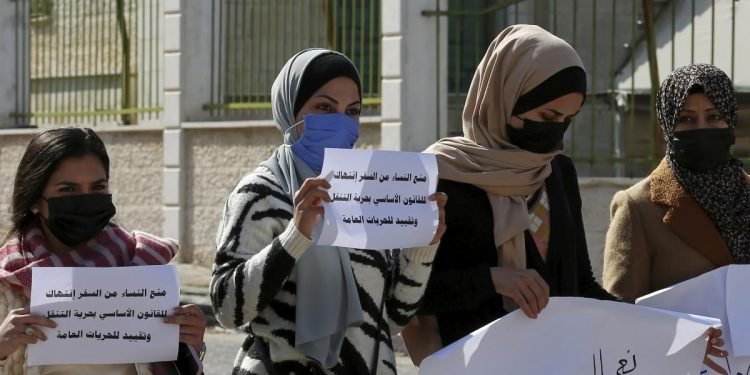Bound: The Constraints of Male Guardianship Policies on Women's Movement and Travel in the Middle East and North Africa
Struggling for Freedom: Male Guardianship Policies and Women's Movement in the Middle East and North Africa

In September 2020, a distressing incident occurred at a Qatar airport when a 30-year-old mother of five was halted by officials who insisted on contacting her male guardian to confirm her travel permission. Despite her husband accompanying her to the airport, they refused to accept his presence and insisted on involving her father. The woman's relative expressed their dismay, stating that she was treated like a child, emphasizing that she is an individual with rights and not someone's property.
The plight faced by women throughout the Middle East and North Africa region involves various restrictions that impede their freedom to move within their own countries or travel abroad without the consent of their male guardians, typically fathers, brothers, or husbands. This report delves into the regulations imposed by 20 countries in the region, shedding light on the requirements for women to acquire their male guardians' permission for internal mobility, obtaining passports, and traveling abroad. It also explores whether women have the same rights as men to travel with their children as guardians.
Advocates of these patriarchal rules in the Middle East and North Africa often argue that they serve as a safeguard for women. However, these rules are inherently demeaning and actually expose women to domestic violence. Women have voiced instances where men exploit, punish, or degrade them using these regulations, thereby violating their rights.
The restrictions on women's travel and mobility contradict the laws and constitutions of many states in the region, which guarantee women's equality and freedom to reside in and leave their own countries. Moreover, these restrictions violate international human rights laws that safeguard equality, non-discrimination, and freedom of movement for all individuals, including the right to enter and leave one's own country. Any limitations on freedom of movement must be necessary in a democratic society, explicitly established by law, proportionate to protect the rights and freedoms of others, and consistent with other fundamental rights, such as equality and non-discrimination. Discriminatory movement restrictions also infringe upon women's right to equality before the law and related rights, including work, education, marriage, healthcare access, child custody, and freedom from violence. Nearly all states in the Middle East and North Africa are parties to the Convention on the Elimination of All Forms of Discrimination against Women (CEDAW).
This report serves as a valuable resource for governments, policymakers, civil society, women's rights activists, and organizations by outlining the current state of women's freedom of movement and detailing male guardianship requirements in each respective state.

 chandni
chandni 



